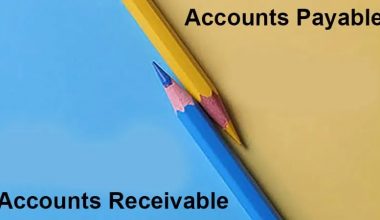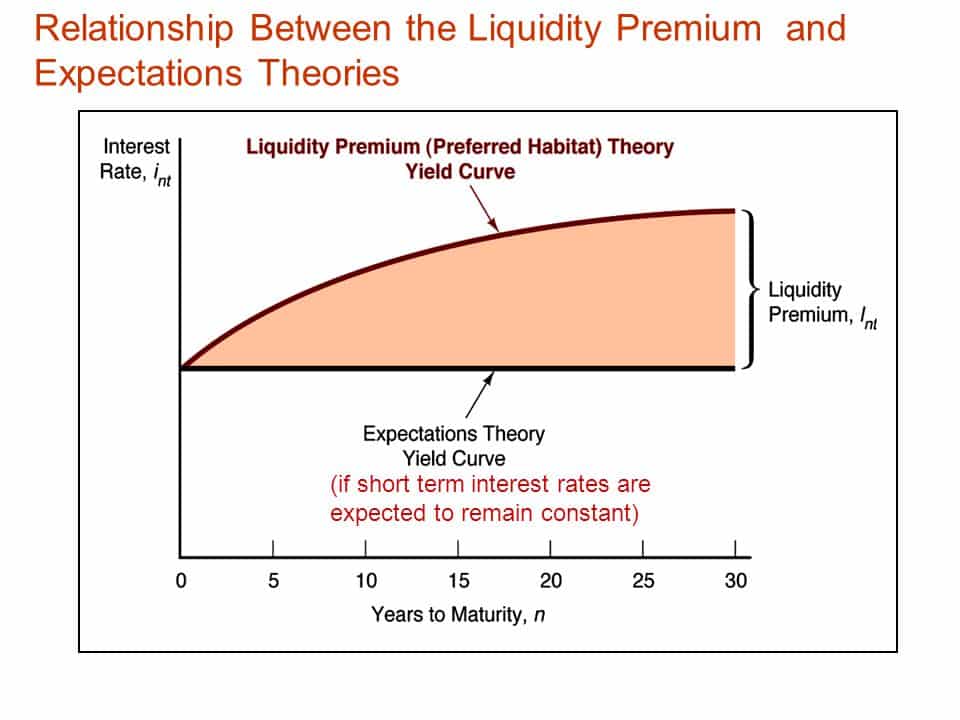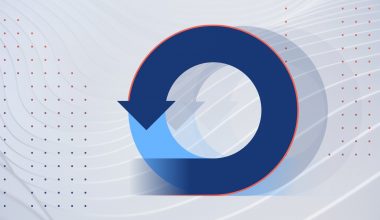If a borrower is unable to settle their debts or fails to make scheduled loan payments, their delinquency will be reported to the credit bureau. Their credit history will be harmed, and their debt, including medical and utility bills, will be turned over to a collections agency or bill collector within three to six months of default. Here, we’ll explain the job roles of a bill collector, including the salary range and how you can deal with harassment from a collector.
What Is A Bill Collector?
A bill collector is a company or organization that recovers money owed on past-due accounts. Many bill collectors are hired by companies that owe money to debtors, and they work for a fee or a percentage of the total amount collected. Some bill collectors are debt buyers; these companies buy debt for a fraction of its face value and then try to collect the full amount.
A collection agency is another name for a bill collector.
Companies find that hiring a debt collector to recover unpaid debts is less expensive than pursuing clients directly. The collector has the tools and resources necessary to locate a debtor, regardless of whether they have changed location or phone number.
What Is The Job Of A Bill Collector?
A bill collector attempts to collect payment on past-due bills. They negotiate repayment plans with debtors and assist them in finding solutions to make paying their past-due bills more manageable.
Responsibilities Of A Bill Collector
Bill collectors typically do the following:
- Locate consumers and businesses with past-due bills.
- Locate consumers with an incorrect address by using the Internet, the post office, credit bureaus, or neighbors—a process known as “skip tracing.”
- Inform debtors of an overdue bill and attempt to negotiate a payment plan.
- When necessary, explain the terms of the sale or contract to the debtor.
- Learn the reasons for the past-due bills, which will aid in negotiations.
- When appropriate, provide credit advice or refer a consumer to a debt counselor.
Bill collectors usually contact debtors by phone, but they may also contact them by mail. They use computer systems to update contact information and keep track of previous collection attempts with a specific debtor. Keeping these records can be beneficial to collectors in future negotiations.
The primary responsibility of a bill collector is to find a solution that is acceptable to the debtor while also maximizing payment to the creditor. Listening to the debtor and addressing his or her concerns can assist the collector in negotiating a solution.
After the collector and the debtor reach an agreement on a repayment plan, the collector follows up on a regular basis to ensure that the debtor pays on time. If the debtor does not pay, the collector sends a statement to the creditor, who has the option to take legal action. In extreme cases, this legal action may include the return of goods or the discontinuation of service.
How to Get a Job as a Bill Collector
Collectors are typically required to have a high school diploma. It is common to receive a few months of on-the-job training.
Bill Collector Education
Most bill collectors must have a high school diploma, but some employers prefer applicants who have taken some college courses. Communications, accounting, and basic computer courses are just a few examples of classes that will help you get started in this field.
Bill Collector Training
After being hired, collectors typically receive on-the-job training. Learning how to use computer software is part of the training, as is instruction on federal debt-collection laws (the Fair Debt Collection Practices Act) and state debt-collection regulations. Collectors may also be taught negotiation skills.
Important Characteristics of Bill Collectors
Listening abilities: When attempting to negotiate a repayment plan, collectors must pay close attention to what debtors say. Learning about the debtors’ specific situation and how they got into debt can help collectors suggest solutions.
Negotiation abilities: The primary responsibilities of a collector are to reconcile the differences between two parties (the debtor and the creditor) and to offer a solution that is acceptable to both.
Communication abilities: Collectors must be able to communicate with debtors in order to explain their options and ensure that they fully comprehend what is being said.
What Is The Salary Of A Bill Collector Like?
A bill collector earns a median annual salary of $37,700. The median wage is the wage at which half of the workers in a given occupation earned more and half earned less. The lowest 10% earned less than $28,820, while the highest 10% earned more than $59,360.
The following are the median annual wages for bill collectors in the top industries in which they work:
- $46,100 for company and enterprise management
- $38,260 for professional, scientific, and technical services
- $38,190 for healthcare and social assistance
- $38,050 for credit intermediation and related activities
- $34,030 for business support services
How Do You Deal With A Medical Bill Collector?
Medical debt, no matter how large or small, can have an impact on your finances. Here are some suggestions for dealing with a medical bill collector.
#1. Obtain Information
When a medical bill collector contacts you, your initial reaction may be to pay the debt. Don’t make this error. Hundreds of thousands of claims are handled by these collection agencies. Mistakes occur. There are also many fraudulent debt collection agencies that are not authorized to collect medical debt.
#2. Safeguard your credit and identity.
You don’t want to pay someone else’s debt or the wrong agency. Do some research to avoid this happening.
Begin by conducting research on the collection agency. Check that the agency is legally permitted to operate in your state. The majority of states require debt collectors to obtain a license. Request information from the medical debt collector, such as their name, agency name, street address, company phone number, and license number.
You should then check with your state agency to ensure that this information is correct. It’s also a good idea to contact the collection agency directly to ensure that the medical collector who is contacting you is working for them.
Second, inquire about the debt with the collector. Determine the exact name on the debt, the health care provider, and the date of services. This information may assist you in determining whether or not the debt is yours.
#3. Request Debt Verification
If you do not believe the medical debt is yours, you should file a dispute. If, on the other hand, you believe the debt is yours, go one step further. Request that the medical collector send you an itemized list with coding. You have a legal right to this information. If the medical collector is unable to provide this information, try directly contacting the health care provider.
When you receive this report, double-check the names, dates, and services listed to ensure they are correct. You can also request a claims history report from your insurance company. This information can reveal whether or not the insurance company paid for these services.
Also, keep in mind that minors are not allowed to enter into legal contracts in most states. This means that in many cases, they are not liable for medical debt incurred while they were minors. If you were a minor at the time this debt was incurred, you must file a dispute.
#4. Make a Dispute
If you believe the medical debt is incorrect or does not belong to you, you have the right to file a dispute, but you must act quickly. The law only gives you 30 days from the first contact to file a dispute. Explain why you believe the debt is not yours, note any errors you discovered, and provide any documentation in your dispute.
Once finished, make a copy of your letter and any backup information before sending it by certified mail. Once the collection agency receives your letter, they must cease all contact with you and conduct an investigation into your response. They must also notify you in writing of the investigation’s findings.
If the agency is unable to verify the debt, the collection process must be halted. If, on the other hand, they discover the debt is yours, they may continue to contact you.
#5. Be certain that it is listed as medical debt.
Medical debt can have an impact on your credit score. Request a copy of your credit reports to determine the impact. Each year, you are entitled to one free copy of your credit report from each of the three major credit reporting agencies: TransUnion, Equifax, and Experian.
When you receive your credit reports, double-check the information. You should also ensure that the debt is listed as medical debt with the credit reporting agencies. This is a critical factor because reporting agencies must handle medical debt differently. How?
Medical debts that have been paid in full are removed from your credit report. Credit reporting agencies will remove medical debt from individuals’ credit reports once it is paid in full beginning in 2022.
Before listing medical debt, credit reporting agencies will wait. Credit reporting agencies will now hold off listing medical debt on credit reports for six months to a year.
Only large medical debts will be listed by credit reporting agencies. Credit reporting agencies will no longer list medical debt of less than $500 on credit reports beginning in 2023.
Despite these changes, medical debt can still have an impact on your credit. Even a slightly lower credit score can impair your ability to obtain a credit card, obtain a personal loan, or buy a home.
If you discover any errors on your credit report, such as a medical debt that isn’t listed as such, file a dispute with the credit reporting agency. You can send the credit reporting agency a letter explaining the error, why you believe it is incorrect, and any proof you have of the error.
#6. Understand Your Rights
The most important thing to remember when dealing with medical debt collectors is to understand your rights. Learn about the rules that medical debt collectors must follow in your state. It’s also critical to ensure that the debt is yours. If the debt does not belong to you or the collection agency cannot provide you with an itemized list, always file a dispute.
How to Stop Bill Collector Harassment
Harassing phone calls from bill collectors can do more than increase your stress level. Personal bankruptcies, marital instability, job loss, and invasion of privacy have all resulted from bill collector harassment.
Persistent bill collection or debt verification attempts are legal. Bill collector harassment, on the other hand, is illegal and will not be tolerated by the Federal Trade Commission (FTC). The Fair Debt Collection Practices Act protects you (FDCPA).
Most bill collectors are aware of this and follow federal law. However, some collectors go too far and engage in bill collector harassment. Fortunately, you can take legal action to stop the harassment.
Stopping Bill Collector Harassment
You may have a creditor who calls too frequently, uses profane or obscene language, threatens violence, sends harassing text messages, or does something else.
Fortunately, you have legal options to stop this harassment:
#1. Write a letter requesting that communications cease.
The first step is to send a letter to the debt collector requesting that they stop calling you. The sample letter language is available here.
They must comply with your written request for no contact under the FDCPA. If they do not, you may file a complaint with the Federal Trade Commission (FTC).
Keep in mind that a letter will not make the debt disappear. You must also:
- Make debt repayments.
- Prepare to contest the debt.
- File for bankruptcy and obtaining a debt discharge or repayment plan
- Deal with debt collectors as they arrive.
Remember that the longer you wait, the worse your debt situation may become. Debt collectors must stop contacting you, but they may file a debt lawsuit against you or continue to report your debt to credit bureaus.
#2. Keep a record of all contact and harassment.
Make a note of any illegal behavior. Any violation of the FDCPA should be documented as soon as possible.
Keep a record of all debt collector harassment. You might even want to have someone else present during debt collector phone calls or communications.
Some people even record their debt collector conversations without telling the debt collector. This is illegal in some states, so make sure to check the laws in your own state.
#3. Submit a Complaint to the FTC
If the debt collector continues to harass you, report the company to the Federal Trade Commission online.
Include the following in your complaint:
- The name and address of the collection agency
- Original creditor’s name
- All communications’ dates and times
- Any witnesses’ names
- Copies of any additional materials (written communications, tapes of conversations, your debt collector harassment log, etc.)
#4. Submit a Complaint to Your State’s Agency
It is a good idea to file a complaint with your state’s creditor harassment agency. Additionally, you should send copies to the collection agency and the original creditor.
Concerned about their own liability, the debt collector may offer to cancel the debt if you withdraw the complaint in some cases. This would be a fantastic outcome for you because you would be able to avoid the debt, stop the harassing communication, and avoid potentially lengthy proceedings with the Federal Trade Commission.
#5. Consider suing the bill collector for harassment.
Suing the bill collector is another option. Consider this option only if you have a severe case of debt collector harassment, not simply because the debt collector is annoying. If you lose, the court may order you to pay the debt collector’s court costs and attorney’s fees.
The Fair Debt Collection Practices Act (FDCPA) is a “strict liability” statute. This means you don’t have to demonstrate any actual damages.
You have one year from the date the debt collector violated the law to sue in state or federal court for damages. You may be awarded up to $1,000 in damages plus attorney’s fees simply because the debt collector broke the law. Furthermore, if you can demonstrate actual damages, such as the cost of changing a phone number, you may be able to recover those costs as well.
Remember that your debt will remain valid even if the collector broke the law.
If the debt collector can demonstrate that the violation was unintentional and the result of a “bona fide error,” despite the company’s procedures to avoid such errors, they may be exempt from liability.
What Happens If You Ignore Bill Collectors?
The longer you ignore bill collectors, the more likely it is that they will sue you to collect the debt you owe. If the court enters a judgment against you, you have lost the case, and the bill collector may take additional steps to collect the amount owed.
How Do You Know If A Bill Collector Is Legit?
Inquire about the caller’s name, company, street address, phone number, and professional license number. Debt collectors must be licensed in many states. Check the information provided by the caller with your state’s attorney general. If your state licenses debt collectors, your state regulator may be able to help.
Is Being A Bill Collector Hard?
It’s a job for people who are mentally tough, smart, and brave. It necessitates a thorough understanding of human psychology, a large circle of friends, and a large network of contacts.
Related Articles
- How To Pay Collections: Step-by-step Guide
- Financial Asset Management: Systems, Types & Benefits
- COLLECTION AGENT: Job Description, Roles & Responsibilities
- AFFILIATE ASSET SOLUTIONS: 2023 Comprehensive Reviews & All You Need
- DEBT COLLECTION ATTORNEY: What They Do, Their Importance and How to Hire One






